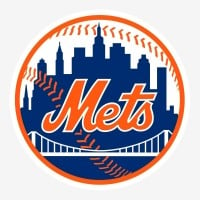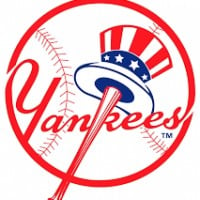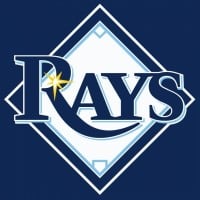Top 10 Most Painful Chokes in MLB History
The MLB has a long list of memorable moments, but nothing compares to a choke. To have it all in your hands only to let it slip away is the definition of pain. Relive these moments in MLB history of some stunning moments that left fans speechless.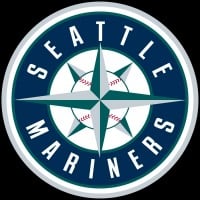 The Seattle Mariners are an American professional baseball team based in Seattle, Washington. Enfranchised in 1977, the Mariners are a member of the West division of the American League in Major League Baseball.
The Seattle Mariners are an American professional baseball team based in Seattle, Washington. Enfranchised in 1977, the Mariners are a member of the West division of the American League in Major League Baseball. The Seattle Mariners have never won a title. They "boast" the game's longest active playoff-drought of 18 + seasons. But there was a time they were a powerhouse. 2001, they were 116-46 the best record in MLB history. 27-year-old Ichiro Suzuki hit.350 with 56 steals. Second baseman Bret Boone hit.331 with 37 home runs. The M's had future Hall of Famers on the rise and dudes in the midst of ludicrous career years. This was their moment. It was their moment alright just not how they wanted it. Seattle's playoff run ended with a cold hard thud with a 4-1 series loss to the Yankees in the ALCS. The M's didn't even taste the World Series, let alone sip champagne. That to me is the biggest choke job in the MLB.
 The Cleveland Guardians are an American professional baseball team based in Cleveland, Ohio. The Guardians compete in Major League Baseball as a member club of the American League Central division.
The Cleveland Guardians are an American professional baseball team based in Cleveland, Ohio. The Guardians compete in Major League Baseball as a member club of the American League Central division. I don't care what you say they absolutely choked. Chicago did the impossible and ended a 108 year World Series drought However, they could've continued being the Lovable Losers, if the Cleveland Indians hadn't pulled a Golden State Warriors and lost their 3-1 lead in the series, including Game 6 and Game 7 losses at home. Trevor Bauer couldn't protect a Game 5 lead (his team's final advantage of the series), and Terry Francona, couldn't get to Danny Salazar in time. They absolutely blew what should have been their moment
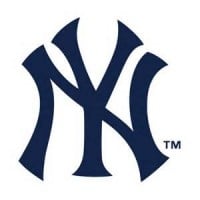 The New York Yankees are an American professional baseball team based in the Bronx, New York City, New York, that competes in Major League Baseball.
The New York Yankees are an American professional baseball team based in the Bronx, New York City, New York, that competes in Major League Baseball. A year after Aaron Boone hit a walk-off home run against the Red Sox to send the Yankees to the World Series, New York took a commanding 3-0 lead in the 2004 ALCS. At that point no team had came back from an 0-3 hole. the Red Sox trailed in the late innings of Games 4 and 5 they still couldn't hold on. The Red Sox got their revenge and ended their title drought still insane how blowing a 3-0 lead happened. This wasn't even 3-1 no this was 3-0 with a chance for a sweep. They only swept themselves away the rest of the series easily the biggest failure of the Yankees.
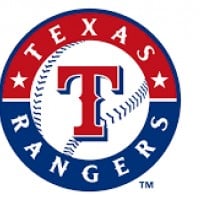 The Texas Rangers are an American professional baseball team based in Arlington, Texas located in the Dallas–Fort Worth metroplex.
The Texas Rangers are an American professional baseball team based in Arlington, Texas located in the Dallas–Fort Worth metroplex. The Texas Rangers held a one-game lead after Game 5 of the 2011 World Series, with the next two games to be played in St. Louis. They were in perfect position to take one of those games and bring a World Series title back to Texas. The Cardinals were down to their last out and down to their last strike not once but Twice in Game 6 when they sparked a two-out rally, tied the game in the ninth and eventually won in extra innings, forcing a Game 7. The next night, Texas would score first, but the Cardinals would go on to score six times in the game, winning 6-2 and leaving Rangers fans all over the world shocked.
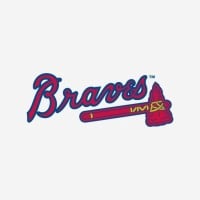 The Atlanta Braves are an American professional baseball franchise based in the Atlanta metropolitan area. The franchise competes in Major League Baseball as a member of the National League East division. They play their home games at SunTrust Park.
The Atlanta Braves are an American professional baseball franchise based in the Atlanta metropolitan area. The franchise competes in Major League Baseball as a member of the National League East division. They play their home games at SunTrust Park. the Braves made the playoffs ever year from 1991 to 2005 well excluding the strike in '94. They won only one World Series during that span, in 1995 against the Cleveland Indians. the Braves' biggest "what if" was 1998, when they won 106 games and the National League East by 18 games behind the trio of Greg Maddux, Tom Glavine and John Smoltz. Rather than rolling to another title, Atlanta lost to the San Diego Padres in six games in the National League Championship Series.
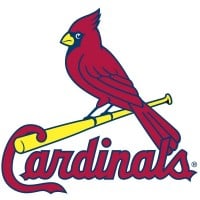 The St. Louis Cardinals are a professional baseball team based in St. Louis, Missouri. The Cardinals compete in Major League Baseball as a member club of the National League Central division.
The St. Louis Cardinals are a professional baseball team based in St. Louis, Missouri. The Cardinals compete in Major League Baseball as a member club of the National League Central division. The second Missouri-only World Series turned out to be quite exciting, despite fans not knowing who to root for, the Royals or Cardinals. The Cardinals won the opening two games on the road and then the Royals would take Game 3 in St. Louis. A 3-0 Game 4 victory by the Cardinals put them in perfect position to win the World Series.A 3-1 lead made it seem all but over. Kansas City, however, won the next three games to shock the world as they were crowned World Series Champions instead of the Cardinals. Game 7 featured a brilliant performance from World Series MVP Bret Saberhagen, who tossed a five-hitter to help propel the Royals over the Cardinals.
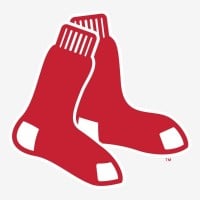 The Boston Red Sox are an American professional baseball team based in Boston, Massachusetts, that competes in Major League Baseball.
The Boston Red Sox are an American professional baseball team based in Boston, Massachusetts, that competes in Major League Baseball. The Boston Red Sox had everything going their way, looking to finish the deal and end their World Series drought that dated back to 1918. One play, however, would change everything and the Red Sox couldn't come up with one more win despite a 3-2 series lead heading back to New York. That play, is forever known as the "Buckner play" is one of the biggest blunders in the history of the game. Game 6 entered extra innings with game tied 3-3. Boston would score twice in the tenth and looked to have the game and series in hand, but then the Mets rallied. New York would come all the way back to win the game after a routine ball got past Buckner and then the Mets took Game 7 the next day.
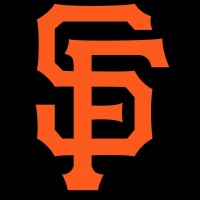 The San Francisco Giants are a professional American baseball team based in San Francisco. The Giants compete in Major League Baseball as part of the West division of the National League. They play their home games at Oracle Park in downtown San Francisco.
The San Francisco Giants are a professional American baseball team based in San Francisco. The Giants compete in Major League Baseball as part of the West division of the National League. They play their home games at Oracle Park in downtown San Francisco. The 2002 San Francisco Giants were up 3-2 in the World Series and had a 5-0 lead in the seventh inning of Game 6, just seven outs away from winning the Fall Classic. Sounds like an easy thing to do right? Scott Spiezio had something to say about that with three-run homer off Felix Rodriguez in the seventh and Troy Glaus' big go-ahead, two-run double in the ninth inning was icing on the cake to force a Game 7, even though the Angels had once looked dead in the water they turned the tables and would go on and cruise in the final game and win the World Series. This one falls on Dusty Baker taking Russ Ortiz out.
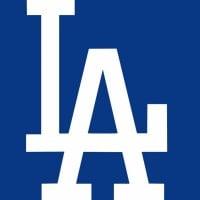 The Los Angeles Dodgers are an American professional baseball team based in Los Angeles, California. The Dodgers compete in Major League Baseball as a member club of the National League West division.
The Los Angeles Dodgers are an American professional baseball team based in Los Angeles, California. The Dodgers compete in Major League Baseball as a member club of the National League West division. I could give Clayton Kershaw his own entry alone on this list for all his playoff failures. But I won't since a certain admin on this website would pull some ridiculous excuse to not allow the list to stand. So I'll spare Kershaw here. Now let's talk about the LA Dodgers who were a 106 win team not bad at all. They were playing a game 5 at home in the divisional round against a Washington team also trying to shake their own playoff demons The Dodgers absolutely cruised through seven innings in Game 5. Walker Buehler was once again dominant. Postseason beast Max Muncy and Kiké Hernández pounced on opportunities presented by Stephen Strasburg's early command troubles. Everything was lined up for Dave Roberts to turn the game over to his excellent bullpen for 10 outs to finish the deal. What did he do instead? He put in Clayton Kershaw who already has a playoff choking reputation at this point. He merely added to that in the 8th inning going up against the heart of the Nats lineup Anthony Rendon and Juan Soto hit back to back homers and it was a tied game in a matter of 3 pitches and even worse they gave up a grand slam in extra innings to seal the fate of their choke job.

Forget the Bartman incident because that really didn't play any part in the utter collapse that the Cubs underwent. They were up 3-1 in the series and allowed the Marlins to come back and win three games in a row. In Game 6, they had a 3 run lead in the 8th inning which is when an overworked Mark Prior lost control, Dusty Baker waited too long to take him out, Alex Gonzalez booted a ground ball, and every pitcher they brought in from the bullpen threw one meatball after another. They gave up 8 runs in that inning and lost the game. They also had a 5-3 lead in Game 7 but lost that game to lose the series. In hindsight we can say that the Marlins were a much better team than the Cubs (seeing as how they beat the mighty Yankees in the World Series in 6 games) but that does not change the fact that the Cubs completely blew their chance to make their first World Series since 1945. Bartman did what any fan would do if a ball was hit towards them, and he didn't even reach over the barrier. The Cubs have no one to blame but themselves for losing that series.


Sometimes you just have to sit and wonder "Why can't pitching and defense just do their jobs?"
 The New York Yankees are an American professional baseball team based in the Bronx, New York City, New York, that competes in Major League Baseball.
The New York Yankees are an American professional baseball team based in the Bronx, New York City, New York, that competes in Major League Baseball. Home-field advantage proved to be everything during the 2001 World Series as both the New York Yankees and Arizona Diamondbacks won each of their home games. The Diamondbacks took the first two games in Arizona before the Yankees won the next three in New York. All the Yankees needed was one win in their next 2 games to win it. There was just one problem, the Yankees had to get it done in Arizona. The Diamonbacks would demolish the Bronx Bombers in Game 6, 15-2, to force a decisive Game 7. The Yankees held a 2-1 lead going into the bottom of the ninth with Mariano Rivera on the mound. Unfortunately, Rivera coughed up the lead and then Luis Gonzalez came up with the bases loaded and blooped a single into short center field to send in the series-clinching run. But don't worry Yankees fans nobody feels bad for you at all.
